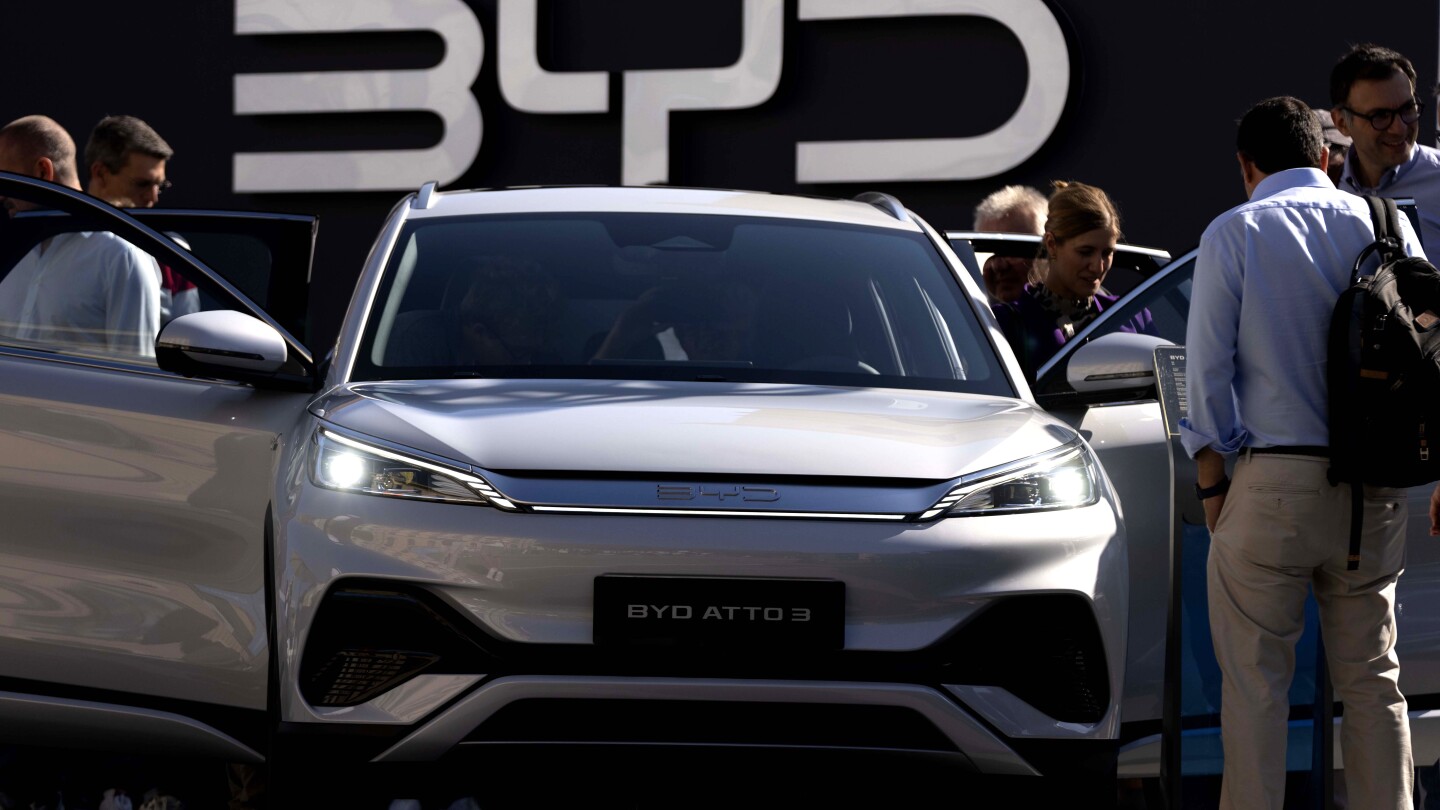BANGKOK (AP) — China’s energy and auto giant BYD has announced an ultra-fast EV charging system that it claims is nearly as quick as refueling a traditional vehicle. BYD, China’s largest EV maker, stated that its flash-chargers can fully charge its latest EVs within five to eight minutes, comparable to the time needed to fill a fuel tank. The company plans to construct over 4,000 of these new charging stations across China. Charging times and limited ranges have been significant factors limiting the transition from gas and diesel vehicles to EVs, although Chinese drivers have increasingly adopted this change, with sales of battery-powered and hybrid vehicles rising by 40% last year. BYD’s announcement seemed to impact Tesla on Monday, as the U.S. EV maker’s share price dropped by 4.8%. BYD began pre-sales of its upgraded Han L and Tang L models. The company, which started by manufacturing batteries, has been refining its battery and energy storage technology while expanding its automotive empire beyond China. It claims its 1 megawatt flash chargers can provide power for 400 kilometers (nearly 250 miles) in five minutes. Ultra-high voltage and a large current are necessary to maximize charging speeds, according to BYD’s founder Wang Chuanfu. To address user concerns about charging, Wang stated, “our pursuit is to make the charging time for EVs as short as the refueling time for fuel vehicles.” The company also mentioned that its flash-charging system relies on silicon carbide power chips with voltage levels of up to 1,500V, developed in-house. Industry analyst Michael Dunne noted that BYD’s Blade lithium-ion phosphate battery might be the world’s safest and most efficient EV battery, with Tesla opting to use it in some of its EVs. BYD reported producing just over 4.3 million “new energy vehicles” last year, up 41% from the previous year, including 1.8 million battery electric vehicles and 2.5 million plug-in hybrids. The price of its shares traded on China’s smaller market in Shenzhen has surged nearly 50% in the past six months. While BYD’s premium models are expected to sell for up to about $40,000, it also manufactures much less expensive EVs, such as the Seagull, priced around $12,000 in China. BYD narrowly surpassed Tesla in battery-powered EV production in 2024, producing 1,777,965 compared to Tesla’s 1,773,443. In early January, Tesla announced its sales declined in 2024, marking the first drop in over a decade, as competitors like BMW, Volkswagen, and BYD gained market shares with competitive EVs. However, BYD has its weaknesses, as Dunne pointed out, noting that JD Power’s 2024 China New Energy Vehicle Initial Quality Study ranked the BYD Seal and BYD Song Plus battery electrics at the bottom of its rankings. — news from The Associated Press
